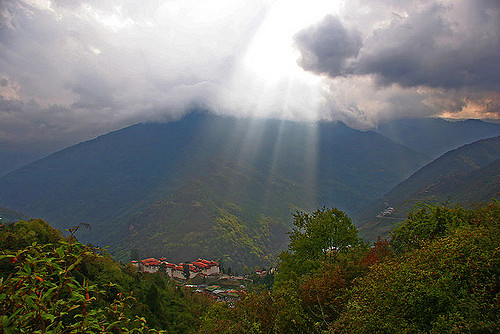Firstly, what does carbon negative mean exactly?
Carbon–negative can be understood to mean that a nation or a region has larger carbon sinks than needed to offset its gross carbon emissions or it is engaging in activities that directly reduce that amount of carbon dioxide in the atmosphere.
Effectively, it means the carbon emissions the country produces are not only offset but are now in the negative due to the generation and exportation of renewable energy.
The Climate Council reports that th3 recent figures show that Bhutan generates only 2.2 million tonnes of carbon dioxide (CO2), but the forest sequesters more than three times that amount. This means they are a net carbon sink for more than four million tonnes of CO2 each year. As per National Accounts Statistics, Bhutan, they export most of the renewable electricity generated by their fast-flowing rivers, which offsets about six million tonnes of CO2. At this rate, by 2020, Bhutan will be exporting enough electricity to offset 17 million tonnes of CO2 annually.
Pretty incredible, right?! We knew that Bhutan was the happiest and greenest city in the world but with its newly acquired carbon-negative status, they are setting serious sustainability goals for the world! For a small nation located snugly between India and China—two formidable nations focused on industrial and economic growth, Bhutan is doing a great job of marching to its own drum and inspiring large supposedly developed nations to act on environmental protection urgently.
